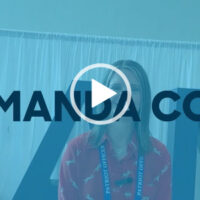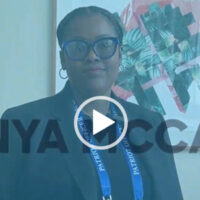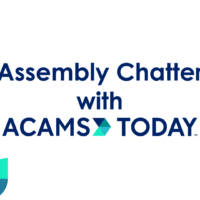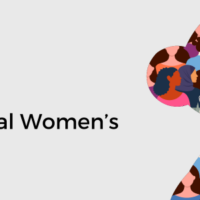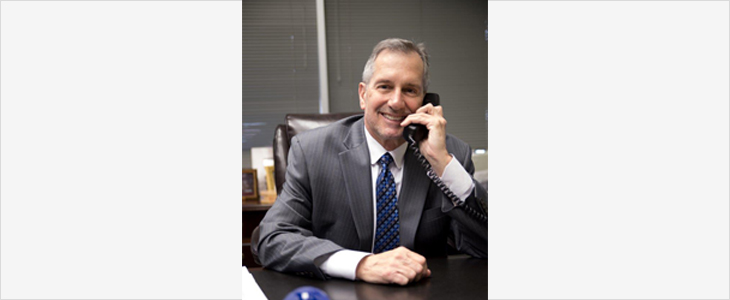
William E. Lowe is the president and chief operating officer of Texas Brand Bank and Texas Brand Bancshares, Inc. Lowe joined the bank in 2008, and served as senior vice president and executive vice president before being elected president and director in 2012. He has over 40 years of experience in the community banking industry in the Dallas metroplex. Lowe graduated from the University of Texas at Dallas in 1978 with a degree in finance, from the Intermediate Banking School at Southern Methodist University (SMU) in 1979, and from the Southwestern Graduate School of Banking in 1983.
Lowe was a founder and director of the Dallas Business Finance Corporation, and was a founder, director and chairman of the Southern Dallas Development Fund.
Under his leadership, Texas Brand Bank assets have tripled to $210,000,000. Bank capital has grown from $8,000,000 to $27,000,000. Lowe has expanded the bank’s presence from a single location to four banking offices.
For the third consecutive year, the bank had no foreclosed real estate, no non-performing loans and no past due loans.
ACAMS Today: First of all, congratulations on 40 years in community banking! What motivated you to pursue a career in this industry?
William E. Lowe: I had always been enthralled with money and finance and numbers, etc. It just seemed like a natural progression. When I was young, there weren’t hedge funds, at least not down here, or much of an impact on the market. Basically, if you wanted to be around money, it was either commercial banking or investment banking. At that time, investment banking meant going to New York and that didn’t appeal to me. As far as community banking vs. big banks, I started at a community bank and I liked it, so I never really saw the need to change.
AT: What did you like about community banks?
WEL: Just the fact that they were smaller. There was a lack of bureaucracy, even as a teller you could walk into the office of the president or the chairman of the board. Everybody was on a first-name basis. Just working for a smaller business as opposed to a big business sounded like the thing to do for me. I’m certain that those that work for big banks think that’s the only way to go too. I grew up out west and we had one bank in my small little cowboy town. I remember going to the bank with my mother and it was a friendly environment. Everyone knew my mom and I came in for the candy, so I can relate a little bit—at least from the customer’s point of view. Well from the employees too, it’s kind of the same on our side. Most people that work in community banks are generally a people person. So it’s a two-way street.
AT: During your extensive career as a community banker, what are the significant changes you have seen within this sector and what has stayed the same?
WEL: Just like in our world, the biggest change is technology—especially the internet. That revolutionized our business. It is an incredible timesaver for our business. When I started in the business, every transaction was done by check and banks filed every single check that was written and mailed them to customers monthly.
Obviously, the regulatory environment has had massive change. There are new regulations every year and the regulators will tell you this one or the other one is not so difficult, which is correct. What becomes a challenge is the total number of regulations.
As far as what has stayed the same in community banking, it is somewhat the same business in that you are still sitting down and speaking with your customer deciding what they need and how you can help them. Direct contact with the customer, although there is a lot of contact via technology. We are big on emails and texting, etc. But the personal relationship is still what drives our business.
AT: Would you say that the personal relationship is what has given your bank success?
WEL: Absolutely. Certainly on the loan side more so than the deposit side. On the loan side, the vast majority of business is referrals. The best advertising that we can have is a customer that likes what we did for them.
AT: So, it’s like a small business?
WEL: That’s a common misconception many don’t think about. Banking is a business, we just happen to be in the business of renting out money. But we have all the same challenges that every small business has.
AT: Tell us about some of the regional challenges community banks face in Texas.
WEL: Region-wise, obviously in Texas we couldn’t be happier because the economy is booming and it’s a great place to be. Some of the challenges that are created are due to the tremendous amount of growth that is occurring in the city and in this area. Probably the single biggest challenge we face is attracting new talent to our bank. The competition is extremely strong and there is a big shortage when it comes to finding people who would like to work in community banks. The last great recession before the most recent one, the one that occurred in the 80s and 90s, essentially wiped out a whole generation of young bankers. What we’re finding is there are a whole bunch of older people like me still in the business and we’re hiring a bunch of young folks to be in the business, but there are not too many in the middle.
AT: Would you say you are hiring more millennials or Gen Z? Also, what other types of challenges do you face during the hiring phase as a smaller financial institution?
WEL: While we are certainly interested in hiring any qualified person at any age, we do quite a bit of recruiting and hiring of people that are sub-30. Having said that, we also have two employees over 80. But by no means are we specializing in young folk. As a small bank, we face all the challenges small businesses do anywhere. But the biggest regional challenges are the growth of the metroplex, which of course is an opportunity as well as a challenge, and attracting talent, I think that’s the toughest thing small banks face. The other reason it’s tough is there’s lots of financial businesses—bigger banks, hedge fund types, investment banking types, real estate types—that frankly are offering higher compensation levels to start with than we offer, that’s a challenge.
AT: How does having what you call the young folk in their 30s to the folk in their 80s affect the office culture or does it affect the office culture?
WEL: Not too much, we try to hire for personality and for skill. Frankly, I’m not interested in hiring someone that is a genius but cannot get along with anyone. Everybody has to get along. There are some cultural differences obviously. For instance, I grew up in a different era than the people who are here who are 80. What we are trying to do with the younger folks is we try to impart what knowledge we have about the banking business so that they can leverage it to make banking decisions in today’s market. The market has changed, a lot of things are different in banking than they used to be. One of my favorite sayings is, “Everything changes except human nature.” Five thousand years ago, the Sumerians were the first bankers. They took deposits from people who had more money than they needed and they loaned it out to people who had less money than they needed, keeping the spread between the two as their income. We still do the same thing today.
AT: Texas Brand Bank has tripled its assets and opened three more locations under your leadership, what advice do you have for other community banks who are working to expand their footprint?
WEL: What has worked for us is we try to go to areas that are being revitalized, for lack of a better term, where they did not have a bank. So far, we have had success in those areas.
AT: How big is your compliance program?
WEL: We have one bank with multiple locations. We have one compliance officer who has a full-time job. For our operations officers, anywhere from 20 to 33 percent of their time is invested in the compliance program. For lending officers, it is maybe 5 to 10 percent. Because we don’t do mortgage lending, we do not have to deal with a lot of lending compliance.
AT: Is your bank leveraging technology like fintech and artificial intelligence (AI) and if so, how?
WEL: We are really not using AI at all. Fintech is fairly new, the most advanced fintech we probably deal with is online banking like most banks. We are looking at adopting some other fintech, for example when you’re out to dinner with your friend, you can transfer money on your phone from your account to their account with Spin, Texas Brand Bank’s transfer money app. You can also take pictures of checks with your phone and send the money to your account. We are also exploring digital marketing with a fintech firm that we are looking to roll out before the end of the year. AI, for a little bank like us, is still down the road because our customers interact with people. When we expanded our footprint, we expanded to areas that are being transformed, essentially, into millennial areas. Every study I’ve ever read, despite what you think, is that millennials really prefer personal contact. You better be able to take care of their needs on a digital basis, but they want to talk to somebody. That’s why we think having these branches in these locations works. Otherwise, we can have one office and people call in from there, but that’s not what people want to do, at least from what we’ve found.
AT: What do you like to do when you are off the clock?
WEL: I’m an avid Dallas Stars fan, which is great because we’re in the playoffs. I like to follow other sports here and I am always reading at least one novel.







